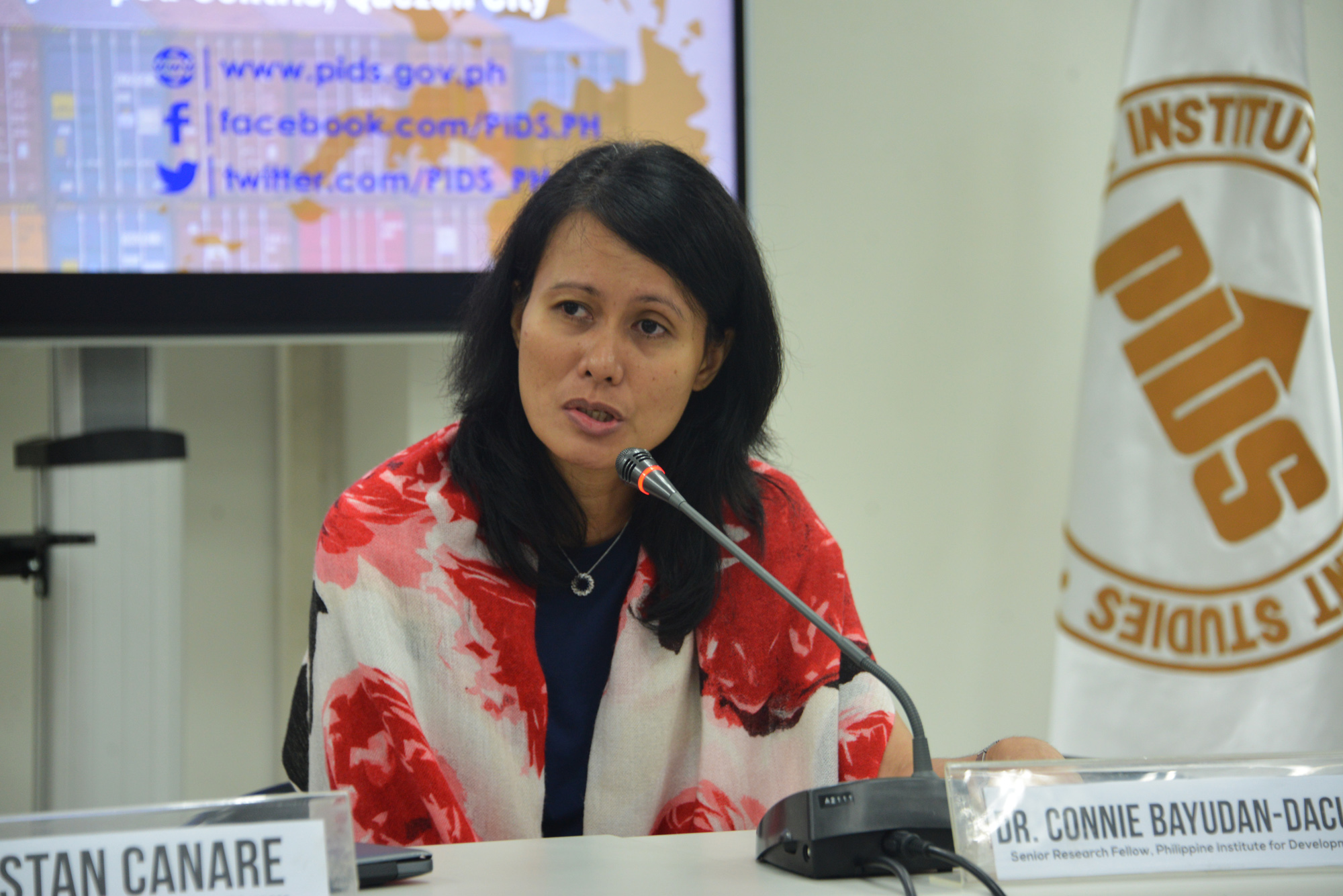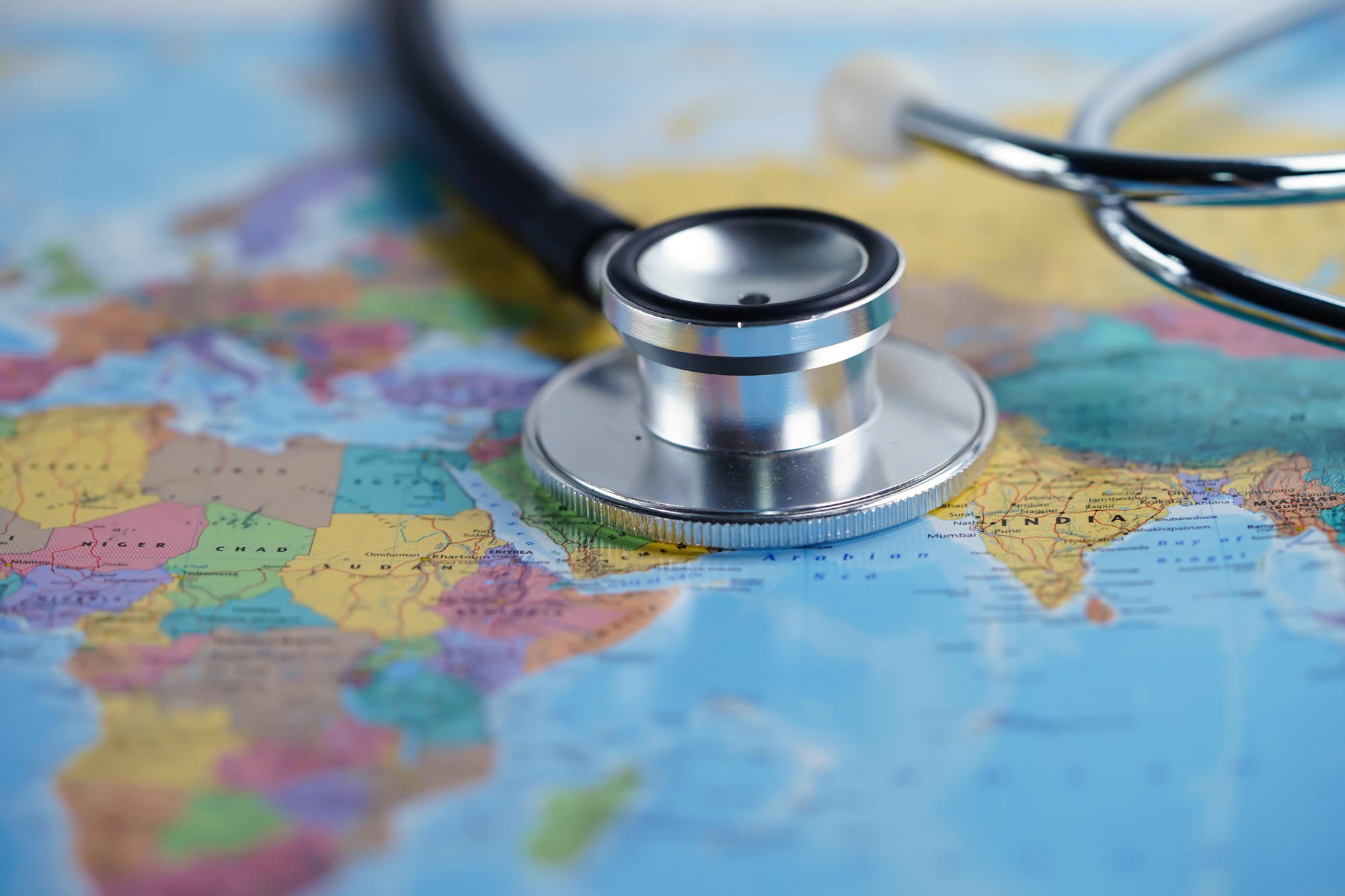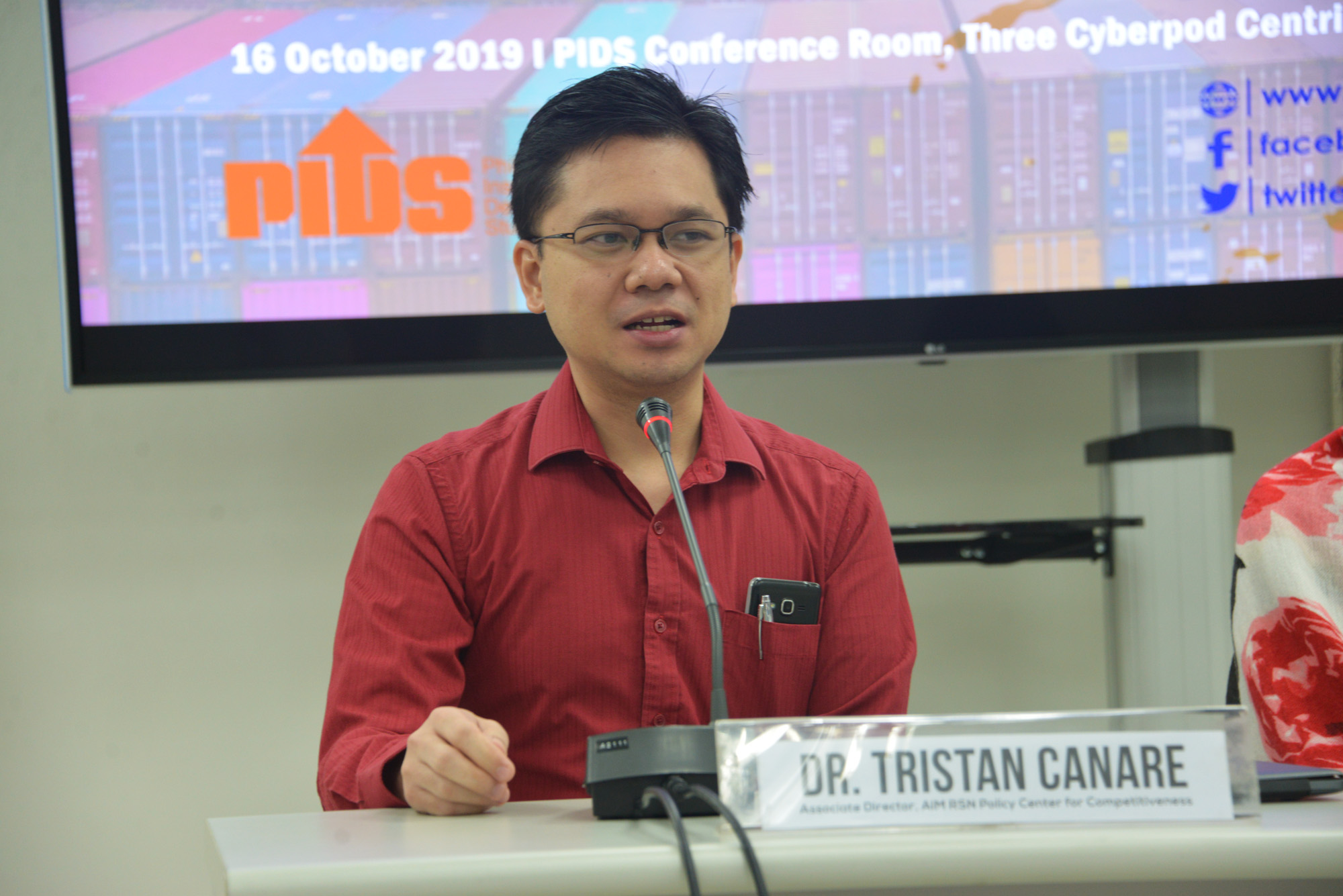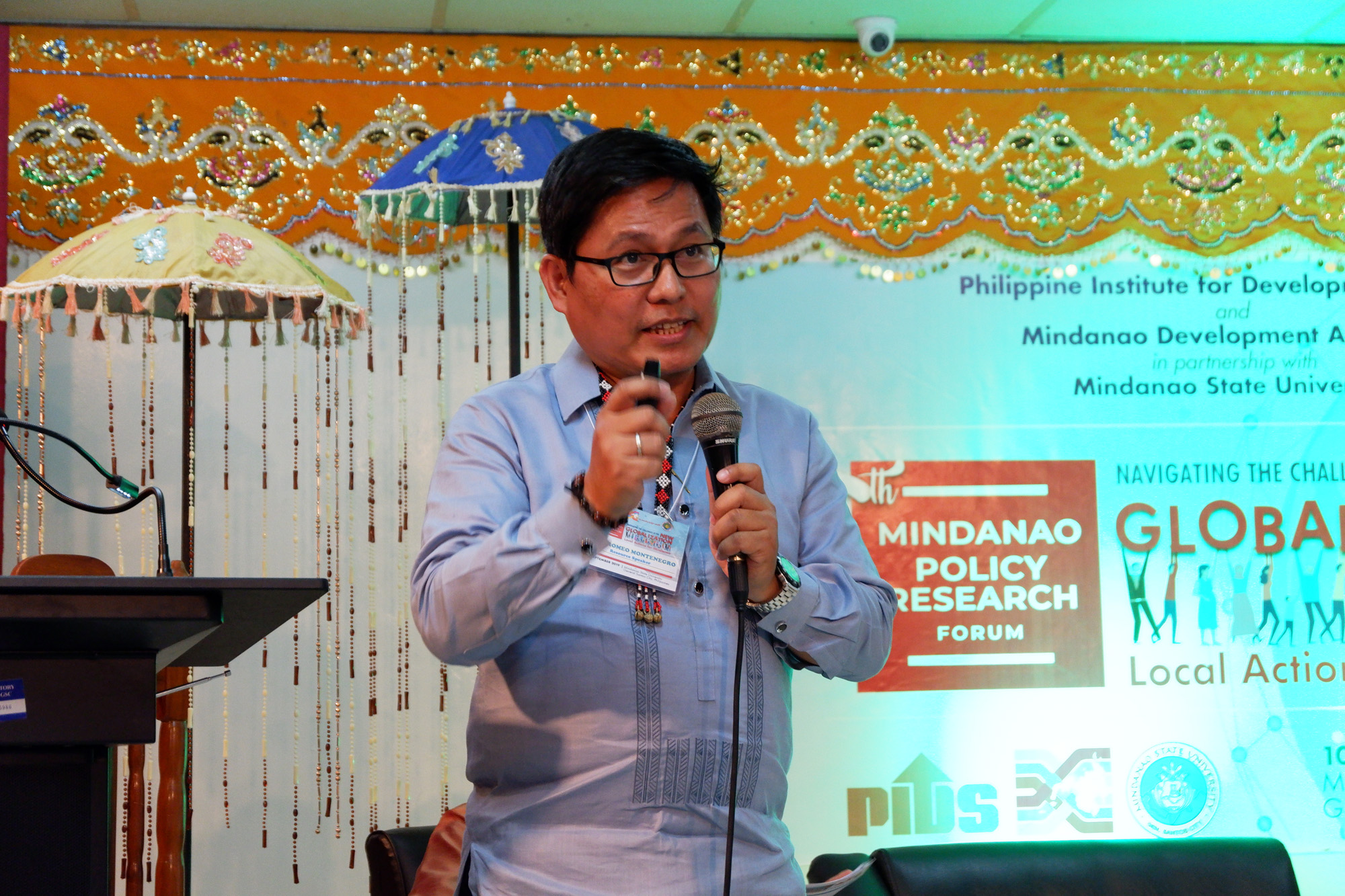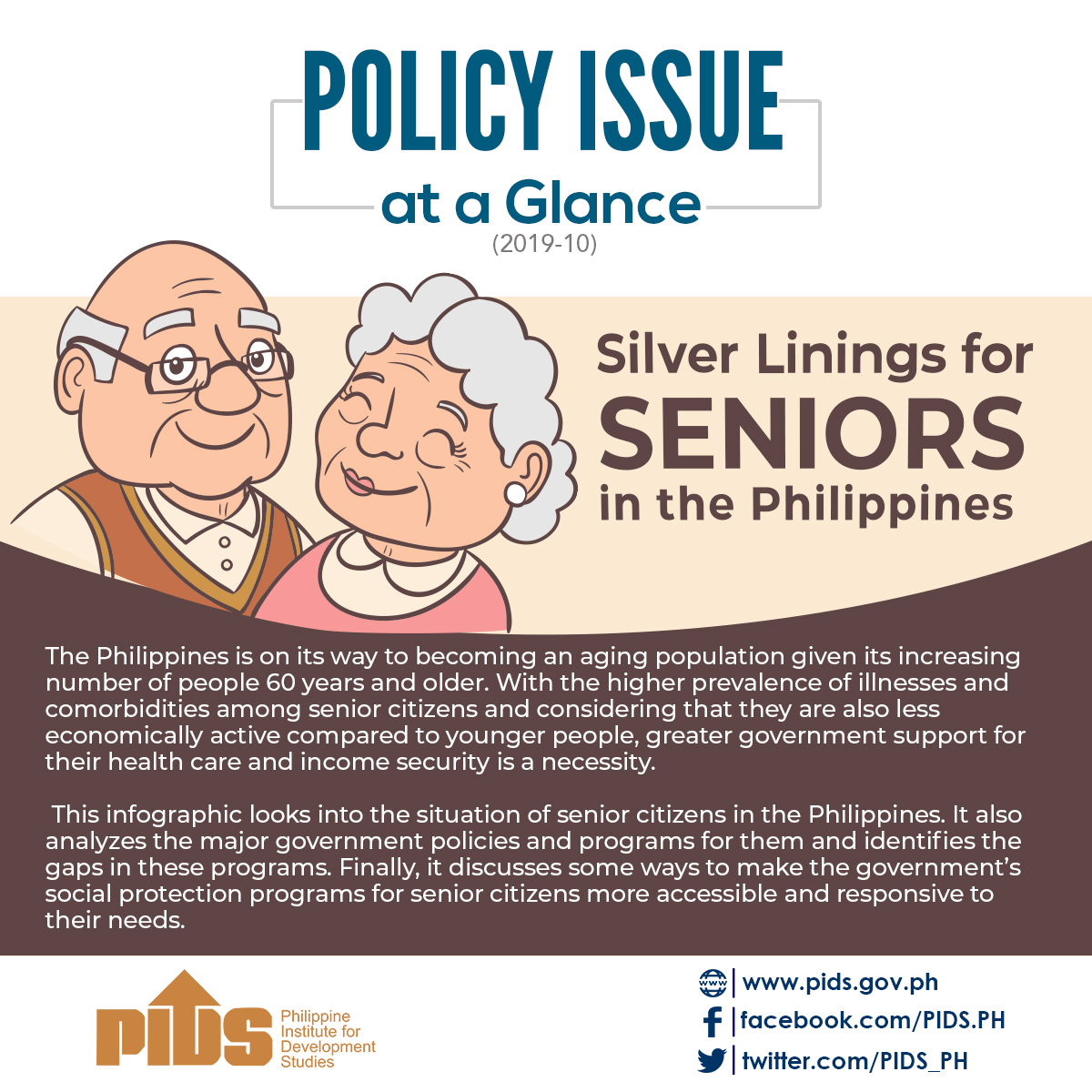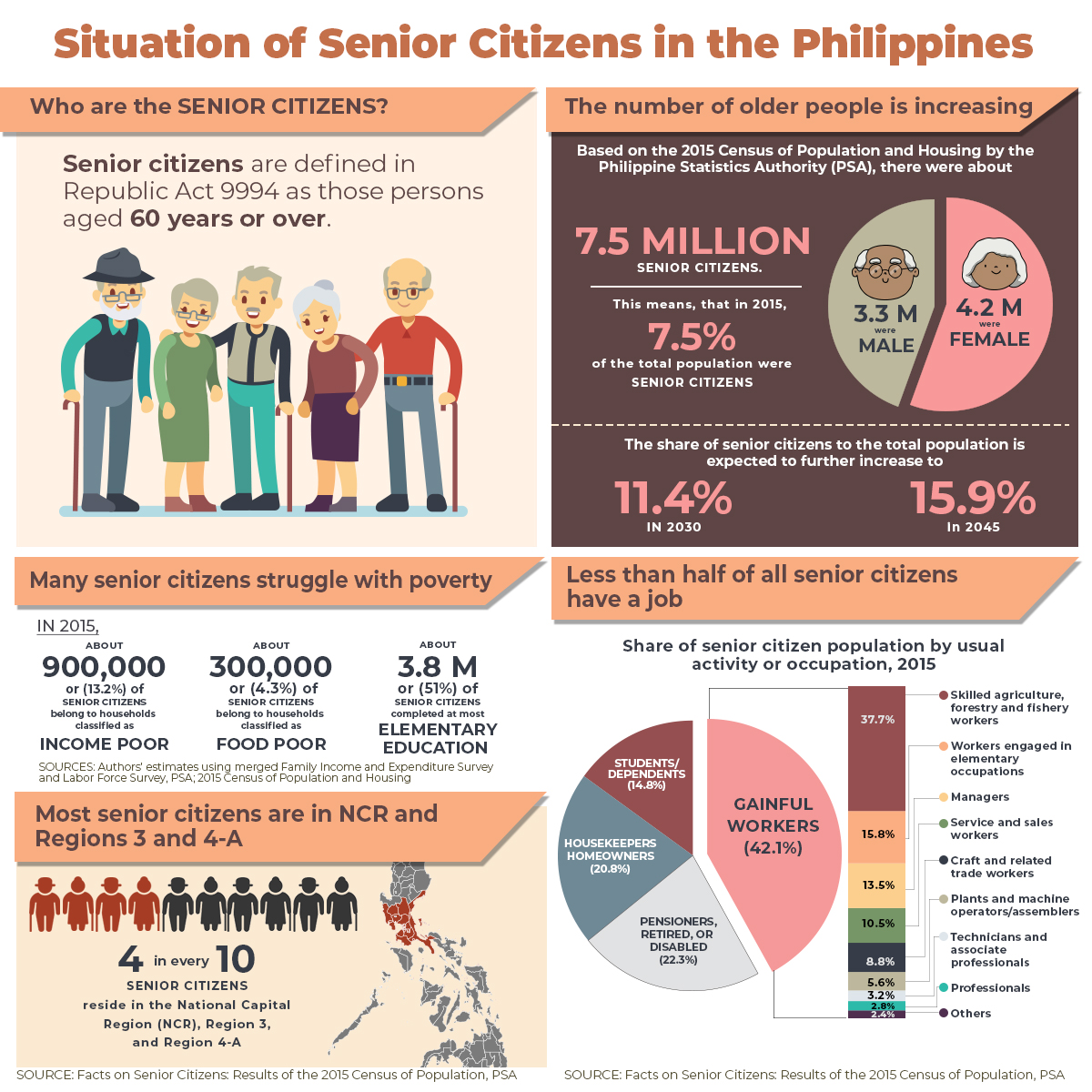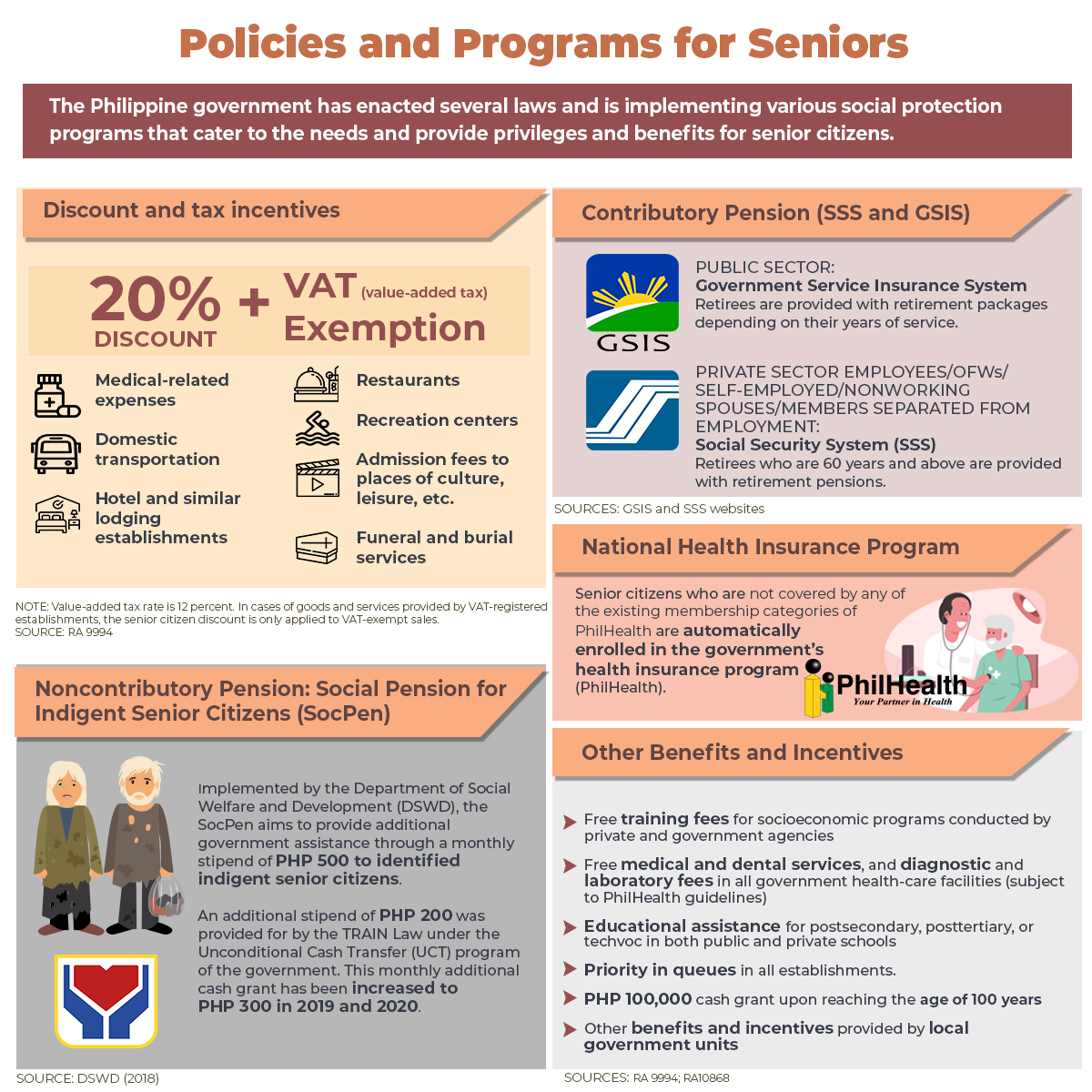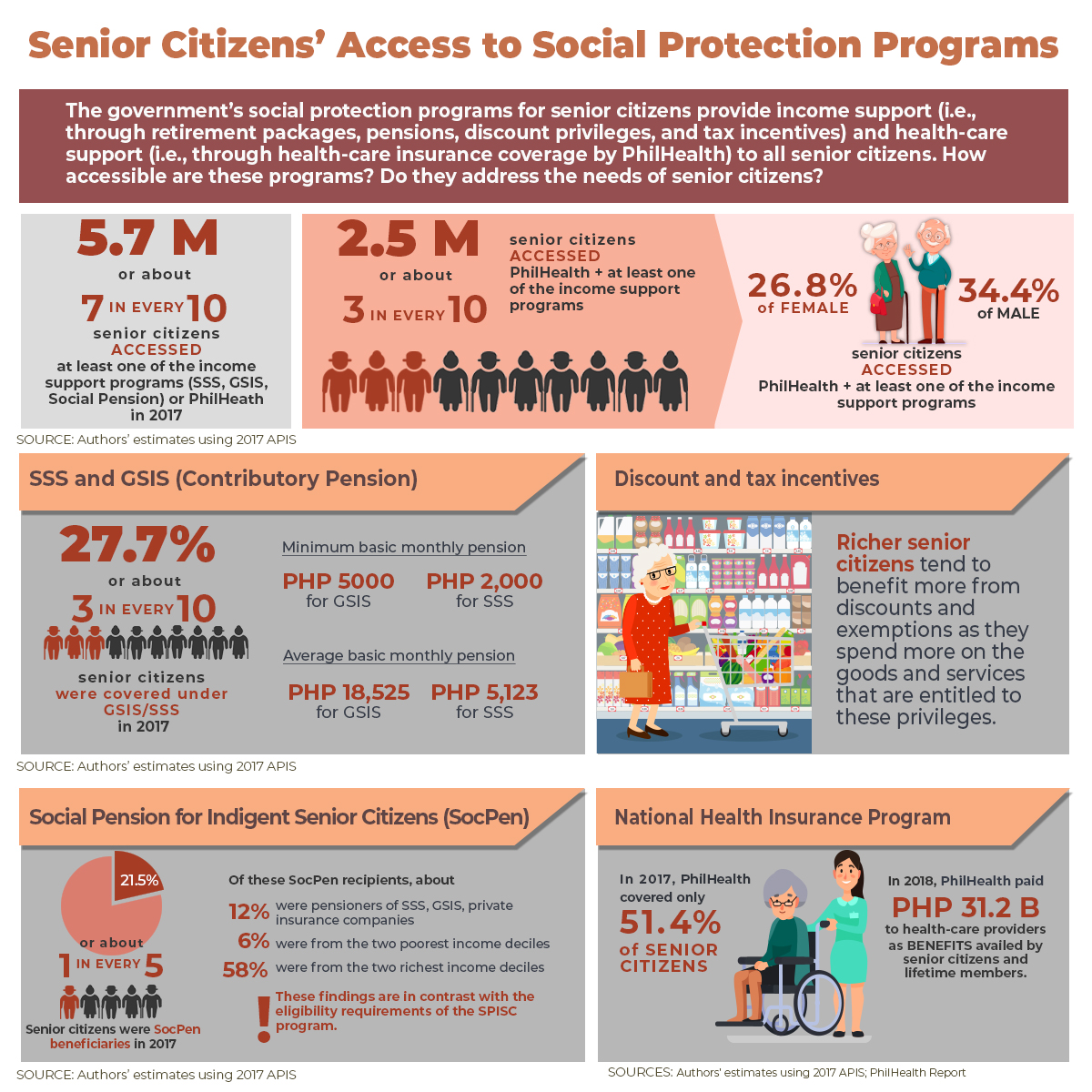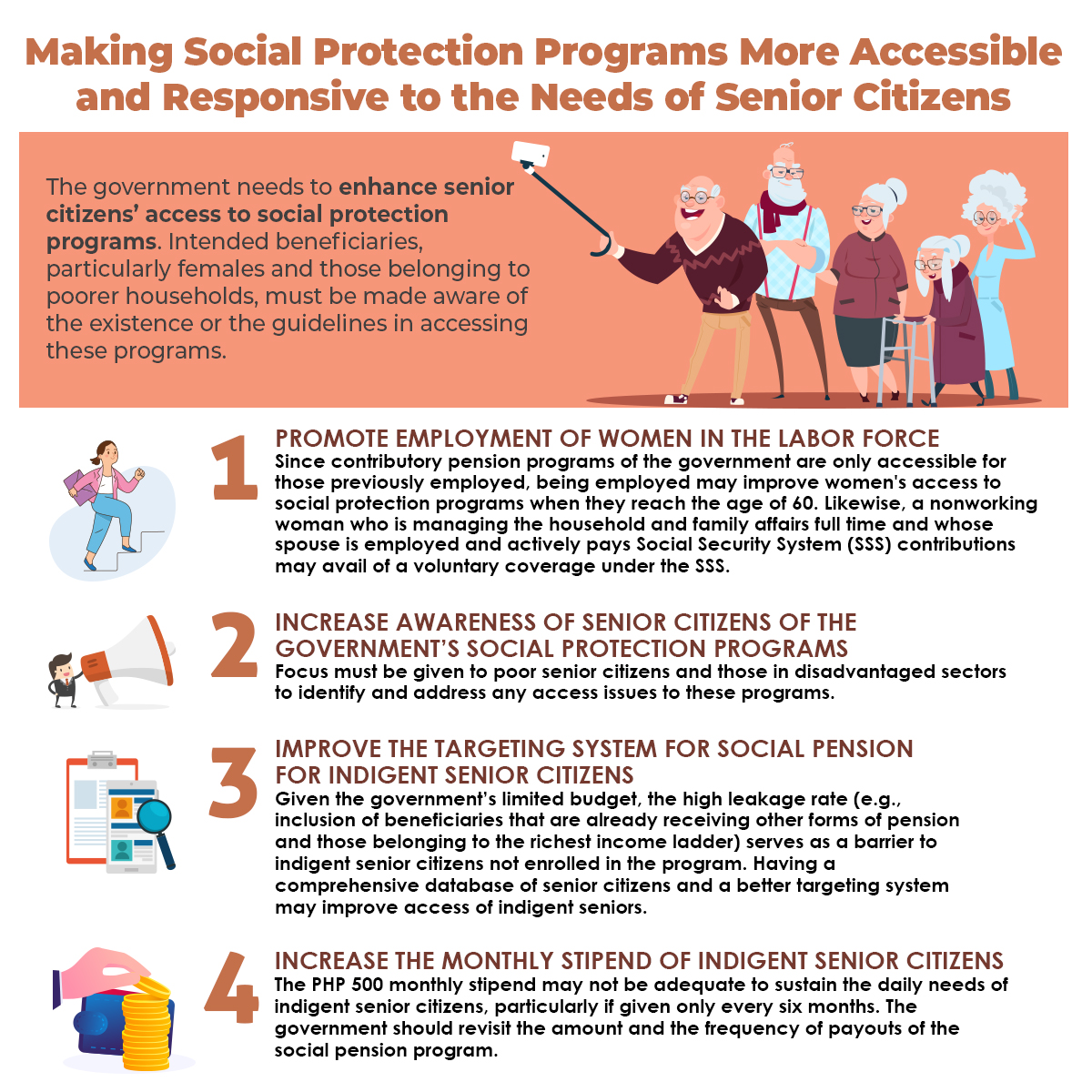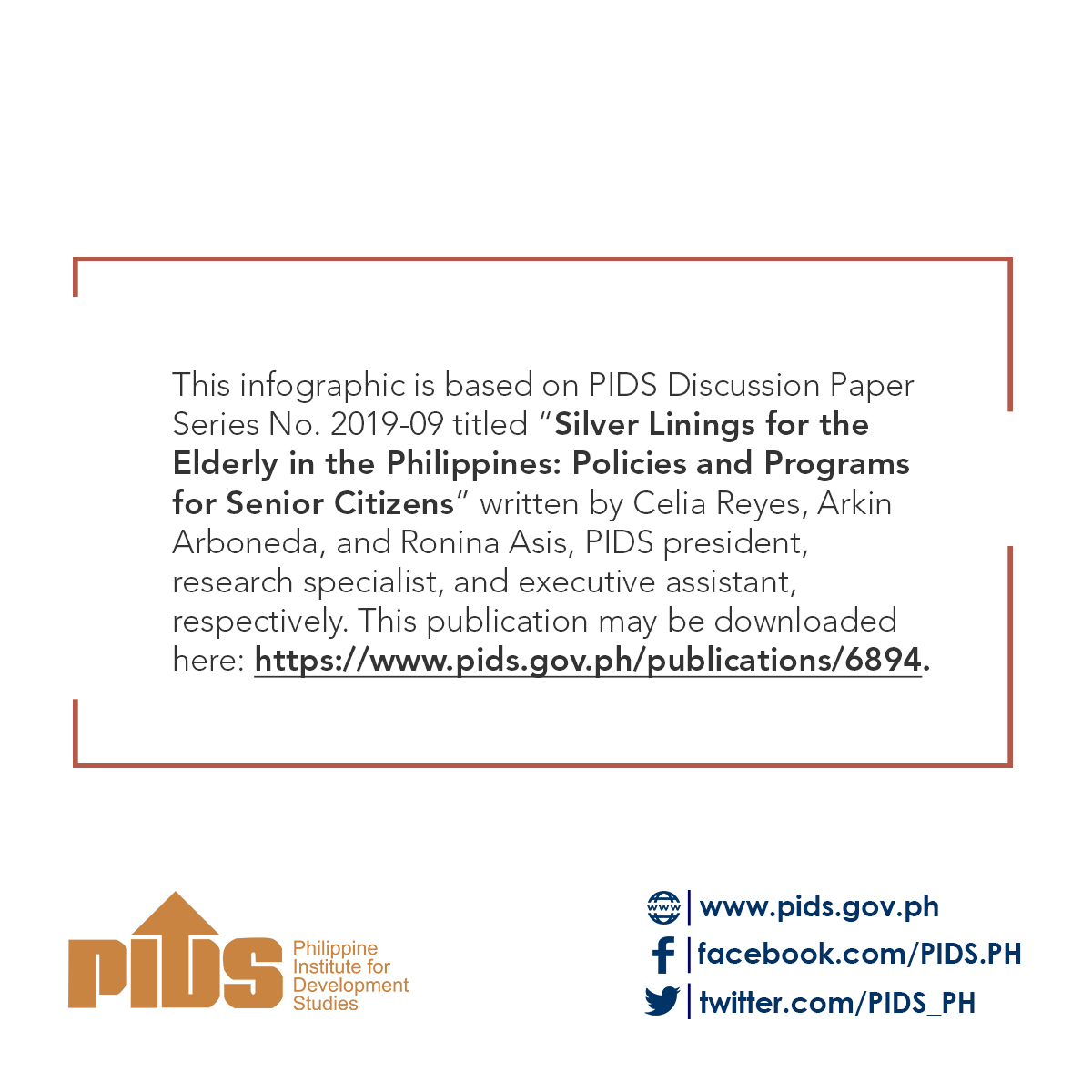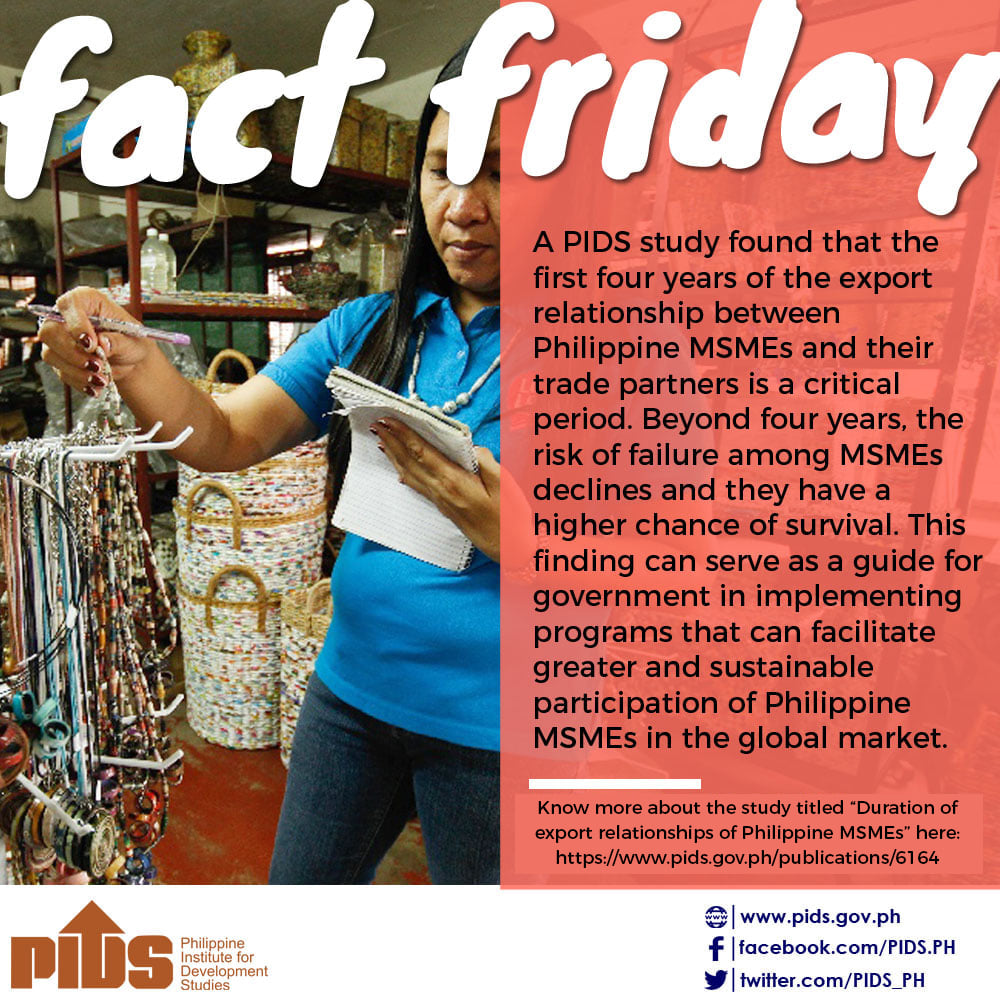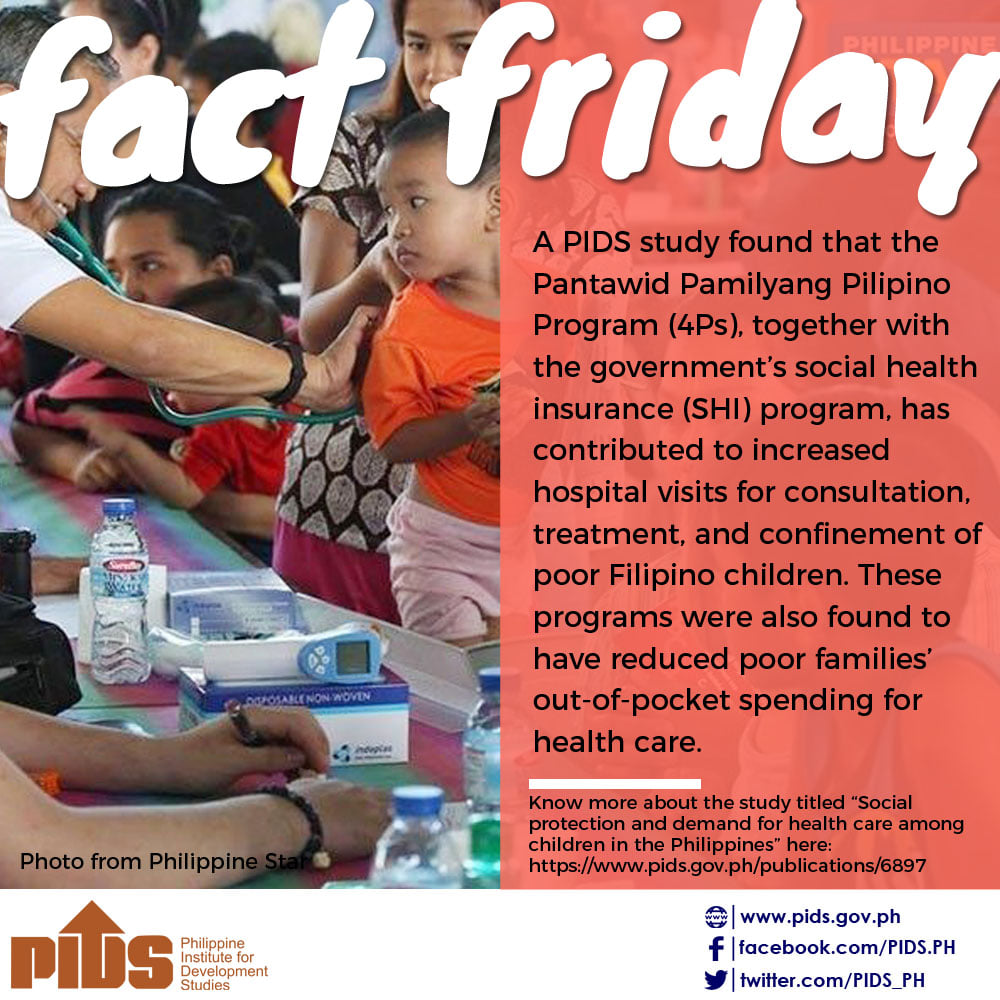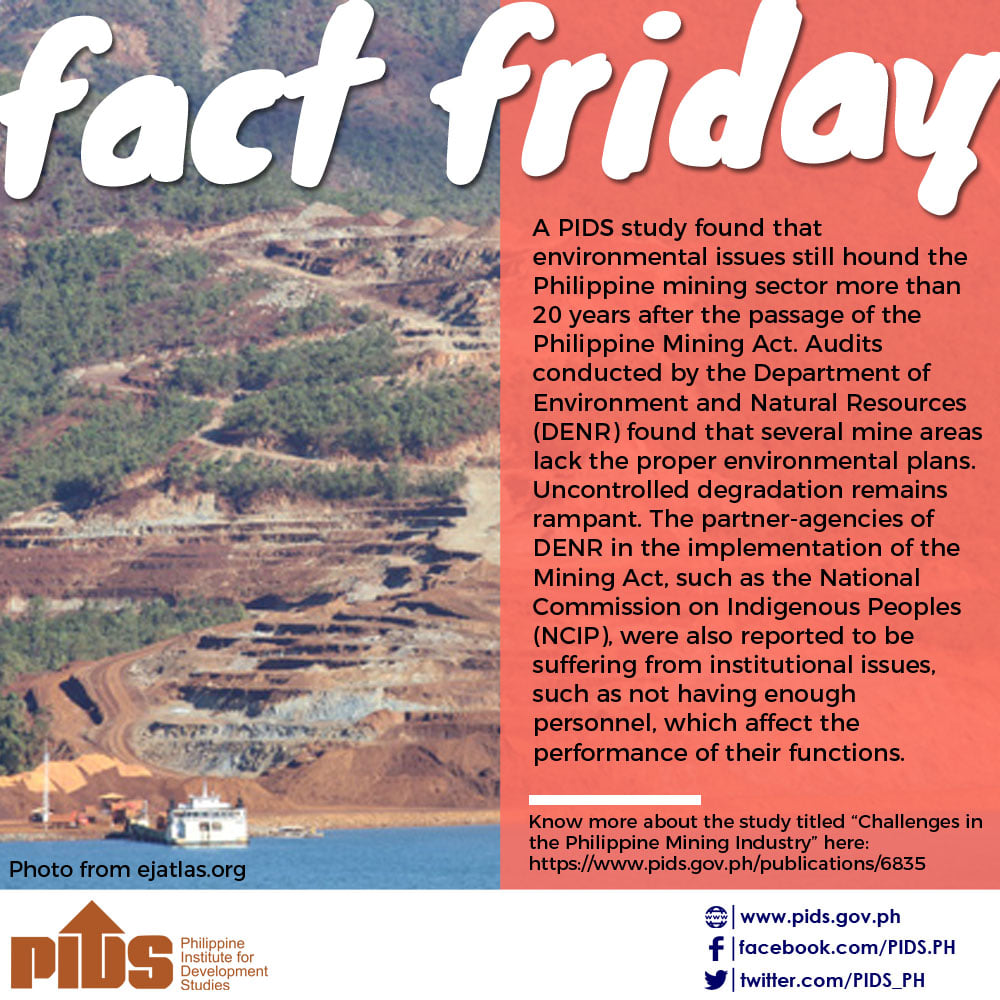Having trouble reading this email? View it in your browser. |
||||
 |
||||
|
||||
DISCUSSION PAPERS
Using survey-based data from the Philippine Statistics Authority, this paper examines people's access to social protection by looking at the coverage of various social protection programs such as the Government Service Insurance System for government workers, Social Security System for private sector workers, and PhilHealth. It examines the circumstances of different groups of workers such as wage and nonwage earners, the self-employed, and the household workers, among others. It identifies the types of occupations and locations of those without access to social protection, or those who belong to the bottom 30 percent of households as they are those most in need of government intervention. The analysis is supplemented by an empirical estimation of the likelihood that employed and unemployed persons will be covered by social insurance schemes. It likewise offers a closer look at the characteristics of those outside the labor force because this is a primary reason for the exclusion of many individuals in accessing social protection. Further, the study examines the social insurance aspect of the Pantawid Pamilyang Pilipino Program. The study also recommends insights to improve the coverage of social protection programs in the country. Click here to download the paper.
DP 2019-10: The Philippines' Voluntary National Review on the Sustainable Development Goals United Nations member-states, including the Philippines, committed to the 2030 Agenda for Sustainable Development and the Sustainable Development Goals (SDGs) to "conduct regular and inclusive reviews of progress at the national and sub-national levels, which are country-led and country-driven". The Voluntary National Review (VNR) aims to facilitate the sharing of experiences, including successes, challenges, and lessons learned, to accelerate the implementation of the 2030 Agenda. The VNR also seeks to strengthen policies and institutions of governments and to mobilize multi-stakeholder support and partnerships for the implementation of the SDGs. In particular, this VNR report examines the status of the country in several SDGs, analyzing baseline data and recent historical data on SDG indicators, as well as other supporting indicators and identifying challenges and constraints. With the theme, "Empowering people and ensuring inclusiveness and equality", the following set of goals were reviewed in depth in this report: SDG 4 (quality education), SDG 8 (decent work and economic growth), SDG 10 (reduced inequalities), SDG 13 (climate action), SDG 16 (peace, justice, and strong institutions), and SDG 17 (partnerships). Click here to download the paper. |
December 9, 2019, 1PM–5PM December 4–6, 2019, 8AM–5PM December 3, 2019, 9AM–5PM -----------------------------------------
CLICK HERE for the guidelines in the preparation of articles. Submissions and inquiries may be sent to PJD@mail.pids.gov.ph. |
|||
The country’s export basket has a potential to evolve despite barely improving from 1995 to 2014, a study published by state think tank Philippine Institute for Development Studies (PIDS) showed.
“The world is wealthier than before, but it is not necessarily healthier.”
Only a few small and medium enterprises (SMEs) in the Philippines are linked to the so-called global value chains (GVCs). This is according to Philippine Institute for Development Studies (PIDS) Consultant Tristan Canare in a public seminar recently organized by the Institute.
The Brunei Darussalam-Indonesia-Malaysia-Philippines East ASEAN Growth Area (BIMP-EAGA), a subregional economic cooperation in Southeast Asia, can help Mindanao reap the fruits of the so-called New Globalization. | ||||
POLICY ISSUE AT A GLANCE Silver Linings for Seniors in the Philippines The Philippines is on its way to becoming an ageing population given its increasing number of people 60 years and older. With the higher prevalence of illnesses and comorbidities among senior citizens and considering that they are also less economically active compared to younger people, greater government support for their health care and income security is a necessity. This infographic is based on PIDS Discussion Paper Series No. 2019-09 titled Silver Linings for the Elderly in the Philippines: Policies and Programs for Senior Citizens written by Celia Reyes, Arkin Arboneda, and Ronina Asis, PIDS president, research specialist, and executive assistant, respectively. To view in actual size, visit the PIDS website or the PIDS Facebook page.
FACT FRIDAY Every Friday, PIDS releases nuggets of research results culled from different PIDS studies. Here are the latest #PIDSFactFriday issues.
Like us on Facebook for more #PIDSFactFriday issues. |
||||
Need help? Have feedback? Feel free to contact us. © 2018 Philippine Institute for Development Studies.
|
||||
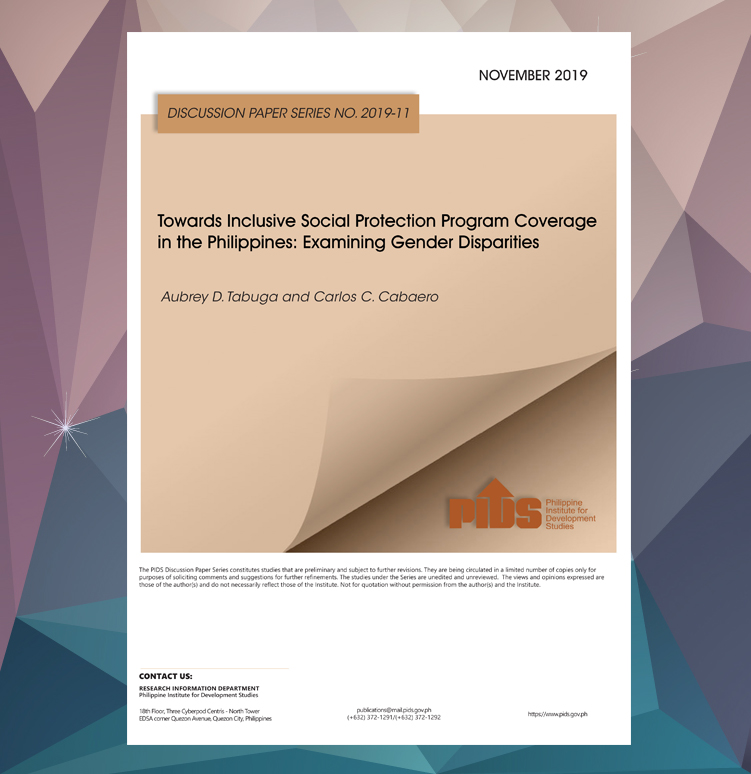
.jpg)
